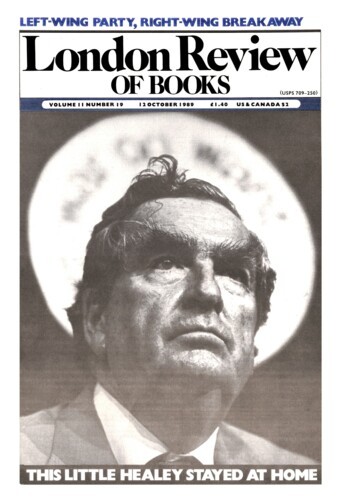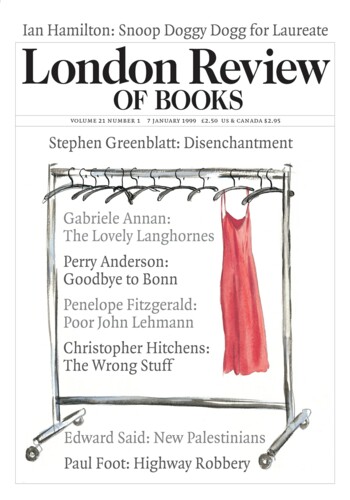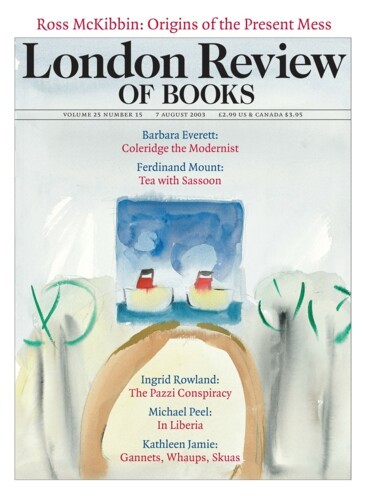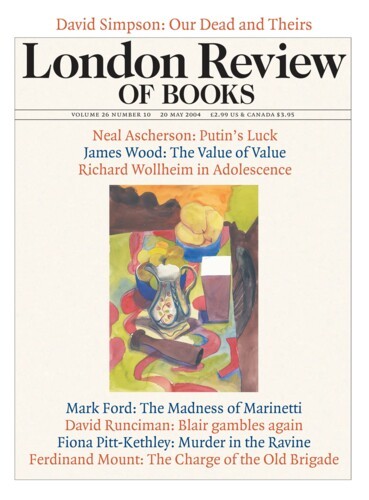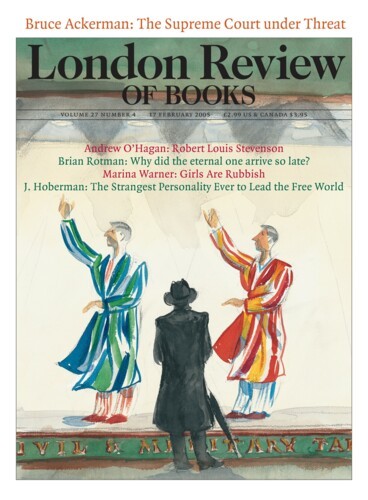Minnesota Fates
Ferdinand Mount, 12 October 1989
Modern American writers have taken to heart Thomas Wolfe’s warning that ‘you can’t go home again.’ These days, being American or being modern or both seems to demand recognition of exile. The writer has to say goodbye to his folks at the earliest opportunity. That is only the first stage in his education in the estrangements of our times. Indeed, such farewells are best got over with in his first book; if successful, the account of how he grew up and out of his small-town, small-minded origins will launch him into the literary world where, after majoring in alienation and/or anomie, he can set about facing the real challenges of a writer’s life: alcohol and alimony.
